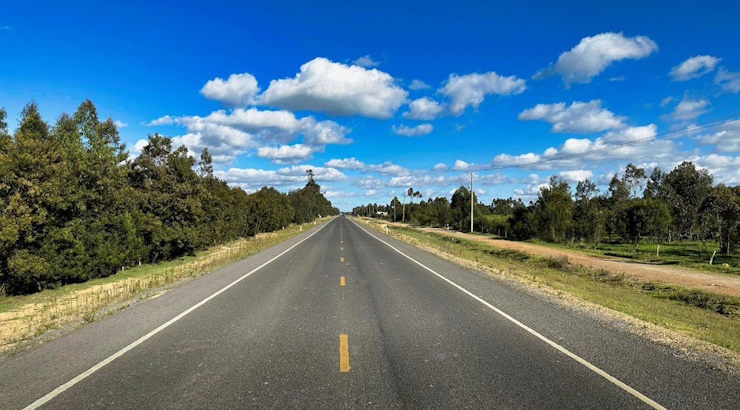Infrastructure
Kenya Cancels Rironi–Mau Summit Road Deal with Vinci
Talks are underway for China to fund a new highway and rail extension.

Kenya has cancelled a Sh180 billion deal with French firm Vinci, with China now on the brink of signing a new agreement for the long-delayed Rironi–Mau Summit Road construction.
The decision follows concerns over the tolling structure and the financial risks that would fall to the government under the terms of the public-private partnership.
The 2020 deal aimed to upgrade the 140km Nairobi–Nakuru–Mau Summit road into a dual carriageway, with Vinci tasked with its design, construction and maintenance for 30 years.
The Kenya National Highways Authority (KeNHA) had raised concerns about the deal, citing risks of low traffic volumes and potential financial losses for the government.
A KeNHA official recently told reporters: “We reviewed the risk distribution and it was not tenable. The government was exposed to too much downside in case of low traffic volumes.”
The government was also reportedly worried that the toll — expected to cost between Sh780 and Sh6,450 — would be too expensive for many people.
The Rironi–Mau Summit Road dualling project was scheduled to begin in October 2021 following the signing of a deal between Kenya and a consortium of three French companies.
The French consortium — made up of Vinci Highways SAS, Meridian Infrastructure Africa Fund and Vinci Concessions SAS — indicated it was ready to break ground after the project received the backing of both the African Development Bank (AfDB) and the World Bank.
The consortium secured the deal to widen the road into a four-lane dual carriageway through a PPP, minimising government spending on road development.
Known as Rift Valley Highway Limited, the consortium was expected to recoup its investment over 30 years by charging toll fees on the road.
However, this did not happen due to unspecified challenges.
When President Ruto assumed office in September 2022, he put the project on hold, saying it was too expensive, with the State initiating a review of the venture.
This is believed to have sparked a fallout between the two parties.
In July last year, Kenya presented the Nairobi–Mau Summit Road construction to Chinese investors as one of the key infrastructure projects up for investment.
PPP Model
The Rironi–Mau Summit Road project will involve upgrading the A8 highway between Rironi and Mau Summit into a four-lane dual carriageway, with plans for future expansion into a six-lane road in some sections.
RELATED: China on Brink of Sh180bn Highway Deal with Kenya
It will be built under a PPP arrangement, whereby a company constructs the road, operates it for a number of years to recover its investment, and then hands it over to the State.
Toll stations
The scope of work, which also includes rehabilitation of the 57.8km single carriageway of the A8 South highway between Rironi and Naivasha via Mai Mahiu, will also involve the erection of toll stations under a PPP arrangement.
“[The contractor] will be expected to build, maintain, manage and operate the highway and recover their money from motorists in the form of user fees,” KeNHA noted earlier.
In the original plan, Rift Valley Connect was to operate and maintain the Southern Bypass as well as the recently upgraded Gitaru to Rironi segment.














